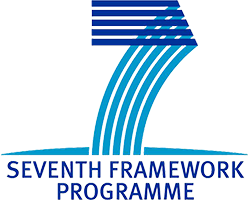Initial WIOD Project

A first version of the World Input-Output Database was constructed within the official WIOD Project, funded by the European Commision as part of the 7th Framework Programme, Theme 8: Socio-Economic Sciences and Humanities. This project ran from May 2009 and ended in April 2012. The database was offically launched on April 16, 2012 in Brussels, during a High-level conference on "Competitiveness, trade, environment and jobs in Europe: Insights from the new World Input Output Database (WIOD)", attended by EU Trade Commissioner Karel de Gucht. This page presents the original project documentation.
Archived Project Website
The contents of the original WIOD website have been copied to these pages. The original project website has been archived and is no longer maintained.
Participants
|
Name
|
Acronym
|
Country
|
|---|---|---|
|
UG
|
Netherlands
|
|
|
Institute for Prospective Technological Studies
|
IPTS
|
Spain
|
|
WIIW
|
Austria
|
|
|
ZEW
|
Germany
|
|
|
WIFO
|
Austria
|
|
|
Hochschule Konstanz
|
HTWG
|
Germany
|
|
TCBE
|
Belgium
|
|
|
OECD
|
France
|
|
|
CPB
|
Netherlands
|
|
|
ICCS
|
Greece
|
|
|
Central Recherche SA
|
CRSA
|
France
|
World Input-Output Database: Construction and Applications
Policy makers and societies at large are facing increasingly pressing trade-offs between socio-economic and environmental objectives. Increasing global integration through international trade and technological development is linked to an increasing inequality between countries as well as between various classes within society. Increases in production induce growth in the use of non-renewable resources such as fossil fuels and generate higher levels of waste and emissions of environmental pollutants. These developments have a global character and any analysis of their causes and effects needs to recognize the dynamic interrelatedness of countries and industries. The World Input Output Database (WIOD) project (which ran from May 1, 2009 to May 1, 2012) has developed new databases, accounting frameworks and models to increase our understanding of the above-mentioned phenomena. The core of the database is a set of harmonized supply and use tables, alongside with data on international trade in goods and services. These two sets of data have been integrated into sets of intercountry (world) input-output tables. Taken together with extensive satellite accounts with environmental and socio-economic indicators, these industry-level data provide the necessary input to several types of models that can be used to evaluate policies aimed at striking a balance between the various policy objectives.
WIOD Media Coverage
|
January 2013
|
|
|
May 2012
|
|
|
April 2012
|
|
|
April 2012
|
|
|
April 2012
|
|
|
April 2012
|
WIOD policy briefs and presentations
|
Title
|
Reference
|
|---|---|
|
Slicing Up Global Value Chains
| |
|
Made in Europe? Trends in International Production Fragmentation
| |
|
Fragmentation, Incomes and Jobs. An analysis of European Competitiveness
| |
|
New measures of European Competitiveness: A Global Value Chain Perspective
| |
|
International integration of production: factor trade and employment effects
| |
|
How does international trade contribute to a sustainable growth of employment?
|
Conferences
|
Vienna, May 2010
|
|
|
Seville, May 2011
|
|
|
Brussels, April 2012
|
|
|
Groningen, April 2012
|
WIOD Working Papers
|
Title
|
Authors
|
Date
|
|
|---|---|---|---|
|
1
|
Jose M. Rueda-Cantuche and Thijs ten Raa
|
June 2009
|
|
|
2
|
Umed Temurshoev, Norihiko Yamano, and Colin Webb
|
January 2010
|
|
|
3
|
Umed Temurshoev and Marcel P. Timmer
|
February 2010
|
|
|
4
|
Neil Foster and Robert Stehrer
|
February 2010
|
|
|
5
|
Erik Dietzenbacher
|
April 2012
|
|
|
6
|
Neil Foster, Robert Stehrer, Marcel Timmer, and Gaaitzen de Vries
|
April 2012
|
|
|
7
|
Robert Stehrer, Neil Foster, and Gaaitzen de Vries
|
April 2012
|
|
|
8
|
Robert Stehrer
|
April 2012
|
|
|
9
|
Marcel P. Timmer, Bart Los, Robert Stehrer, and Gaaitzen de Vries
|
November 2012
|
|
|
10
|
Marcel P. Timmer et al.
|
May 2012
|
|
|
11
|
Bart Los, Erik Dietzenbacher, Robert Stehrer, Marcel Timmer and Gaaitzen de Vries
|
May 2012
|
|
|
12
|
Marcel P. Timmer, Abdul Azeez Erumban, Bart Los, Robert Stehrer, Gaaitzen de vries
|
September 2012
|
|
|
13
|
Gerhard Streicher and Robert Stehrer
|
October 2012
|
|
|
14
|
Robert Stehrer
|
November 2013
|

